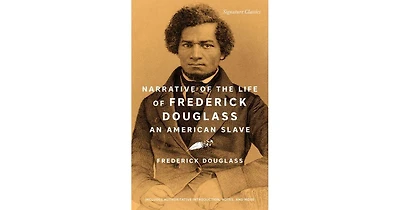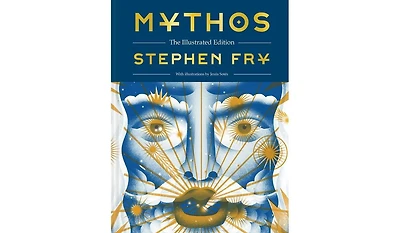Home
Classics of American Romanticism: Bristow, Fry
Barnes and Noble
Loading Inventory...
Classics of American Romanticism: Bristow, Fry in Bloomington, MN
Current price: $20.99


Classics of American Romanticism: Bristow, Fry in Bloomington, MN
Current price: $20.99
Loading Inventory...
Size: OS
Paintings from 19th century America, full of the grandeur and energy of the young country, are widely exhibited, even in Europe and beyond. It is not entirely clear why the same is not true of American concert music of the period; the two works here have the same qualities and have the same kind of general appeal wielded by a
Frederic Church
or a
William Sidney Mount
, but they are quite rarely heard. Listeners will be delighted by the enthusiastic readings here from
The Orchestra Now
and its consistently innovative conductor,
Leon Botstein
. Annotator
Kyle Gann
proposes the
Symphony No. 4 in E minor, Op. 50 ("Arcadian")
, of
George Frederick Bristow
as the finest American symphony before
Charles Ives
'
Symphony No. 1 in D minor
. It is notable that neither
Bristow
nor
William Henry Fry
, represented here by his
Niagara Symphony
, studied in Europe, but
's work is in more of a European pictorial mode. It depicts episodes in the growth of the country quite vividly and with an assured handling of the orchestra.
Gann
frets over the presence of an "Indian War Dance," but really, it does not distort its source material any more than do similar Russian works of the period treating music of the peoples of the Russian Empire. Perhaps the best is saved for last, in the form of
Fry
's
(1854). Scored for no fewer than 11 timpani (one tuned to each note of the scale except F), along with such instruments as tubas, ophicleides (bass tubas), and bass horns, it is indeed a depiction of Niagara Falls, a subject beloved of painters of the period as well. It is over the top in every way, and it seems almost criminal that it has been excluded from symphonic programs for so long; audiences of all kinds will find enjoyment in it. The work's unusual tonalities (listen to the conclusion) make one wonder whether
Ives
might have heard it somehow. It is to be hoped that
Botstein
's inspired work here will begin to rectify the neglect of these composers. ~ James Manheim
Frederic Church
or a
William Sidney Mount
, but they are quite rarely heard. Listeners will be delighted by the enthusiastic readings here from
The Orchestra Now
and its consistently innovative conductor,
Leon Botstein
. Annotator
Kyle Gann
proposes the
Symphony No. 4 in E minor, Op. 50 ("Arcadian")
, of
George Frederick Bristow
as the finest American symphony before
Charles Ives
'
Symphony No. 1 in D minor
. It is notable that neither
Bristow
nor
William Henry Fry
, represented here by his
Niagara Symphony
, studied in Europe, but
's work is in more of a European pictorial mode. It depicts episodes in the growth of the country quite vividly and with an assured handling of the orchestra.
Gann
frets over the presence of an "Indian War Dance," but really, it does not distort its source material any more than do similar Russian works of the period treating music of the peoples of the Russian Empire. Perhaps the best is saved for last, in the form of
Fry
's
(1854). Scored for no fewer than 11 timpani (one tuned to each note of the scale except F), along with such instruments as tubas, ophicleides (bass tubas), and bass horns, it is indeed a depiction of Niagara Falls, a subject beloved of painters of the period as well. It is over the top in every way, and it seems almost criminal that it has been excluded from symphonic programs for so long; audiences of all kinds will find enjoyment in it. The work's unusual tonalities (listen to the conclusion) make one wonder whether
Ives
might have heard it somehow. It is to be hoped that
Botstein
's inspired work here will begin to rectify the neglect of these composers. ~ James Manheim
Paintings from 19th century America, full of the grandeur and energy of the young country, are widely exhibited, even in Europe and beyond. It is not entirely clear why the same is not true of American concert music of the period; the two works here have the same qualities and have the same kind of general appeal wielded by a
Frederic Church
or a
William Sidney Mount
, but they are quite rarely heard. Listeners will be delighted by the enthusiastic readings here from
The Orchestra Now
and its consistently innovative conductor,
Leon Botstein
. Annotator
Kyle Gann
proposes the
Symphony No. 4 in E minor, Op. 50 ("Arcadian")
, of
George Frederick Bristow
as the finest American symphony before
Charles Ives
'
Symphony No. 1 in D minor
. It is notable that neither
Bristow
nor
William Henry Fry
, represented here by his
Niagara Symphony
, studied in Europe, but
's work is in more of a European pictorial mode. It depicts episodes in the growth of the country quite vividly and with an assured handling of the orchestra.
Gann
frets over the presence of an "Indian War Dance," but really, it does not distort its source material any more than do similar Russian works of the period treating music of the peoples of the Russian Empire. Perhaps the best is saved for last, in the form of
Fry
's
(1854). Scored for no fewer than 11 timpani (one tuned to each note of the scale except F), along with such instruments as tubas, ophicleides (bass tubas), and bass horns, it is indeed a depiction of Niagara Falls, a subject beloved of painters of the period as well. It is over the top in every way, and it seems almost criminal that it has been excluded from symphonic programs for so long; audiences of all kinds will find enjoyment in it. The work's unusual tonalities (listen to the conclusion) make one wonder whether
Ives
might have heard it somehow. It is to be hoped that
Botstein
's inspired work here will begin to rectify the neglect of these composers. ~ James Manheim
Frederic Church
or a
William Sidney Mount
, but they are quite rarely heard. Listeners will be delighted by the enthusiastic readings here from
The Orchestra Now
and its consistently innovative conductor,
Leon Botstein
. Annotator
Kyle Gann
proposes the
Symphony No. 4 in E minor, Op. 50 ("Arcadian")
, of
George Frederick Bristow
as the finest American symphony before
Charles Ives
'
Symphony No. 1 in D minor
. It is notable that neither
Bristow
nor
William Henry Fry
, represented here by his
Niagara Symphony
, studied in Europe, but
's work is in more of a European pictorial mode. It depicts episodes in the growth of the country quite vividly and with an assured handling of the orchestra.
Gann
frets over the presence of an "Indian War Dance," but really, it does not distort its source material any more than do similar Russian works of the period treating music of the peoples of the Russian Empire. Perhaps the best is saved for last, in the form of
Fry
's
(1854). Scored for no fewer than 11 timpani (one tuned to each note of the scale except F), along with such instruments as tubas, ophicleides (bass tubas), and bass horns, it is indeed a depiction of Niagara Falls, a subject beloved of painters of the period as well. It is over the top in every way, and it seems almost criminal that it has been excluded from symphonic programs for so long; audiences of all kinds will find enjoyment in it. The work's unusual tonalities (listen to the conclusion) make one wonder whether
Ives
might have heard it somehow. It is to be hoped that
Botstein
's inspired work here will begin to rectify the neglect of these composers. ~ James Manheim

















